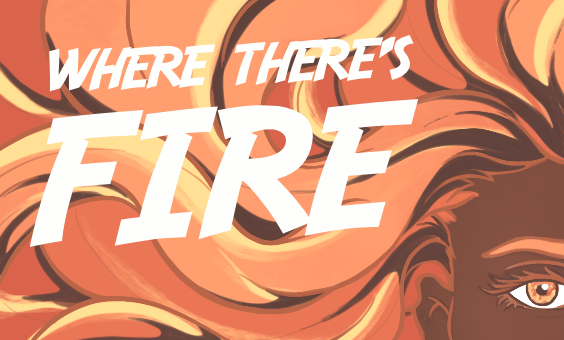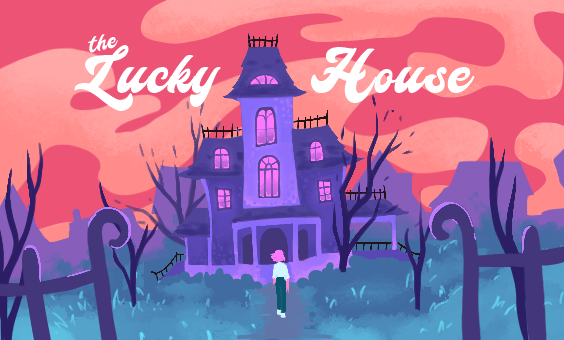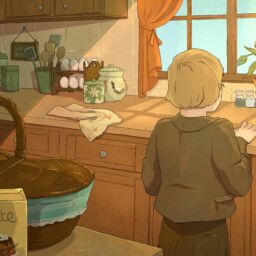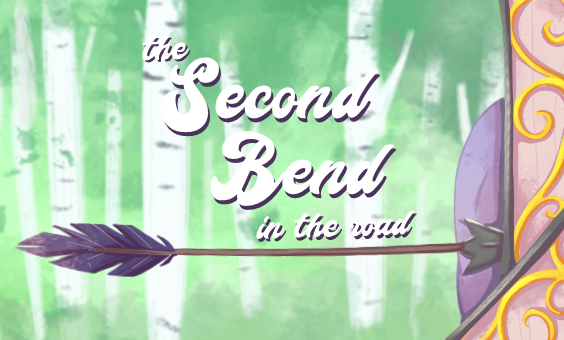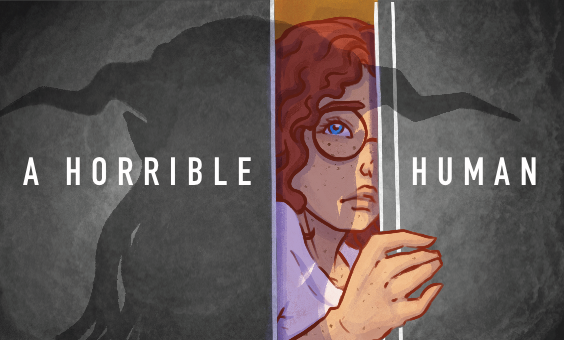- No products in the cart.
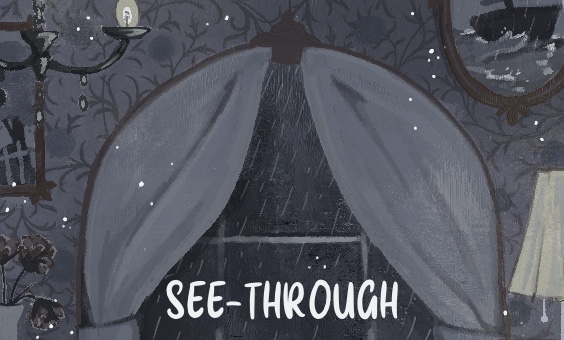
Prince Edward street was an old street.
It had old pavements, old lampposts, and old apartment buildings. Especially nr. 6 and nr. 8 had lived long, long lives on their spot at the start of the street. They had greeted and said farewell to dozens of inhabitants.
But two of their inhabitants
had stayed.
On Prince Edward Street nr. 6 lived—well, lived might not be the right word. She couldn’t, you see. For Anna Stevens wasn’t alive. Born in 1885, Anna hadn’t been alive for a long time.
Just like the buildings on Prince Edward Street had seen everything around them change,
so had Anna.
Slowly but surely, she’d seen the rights she’d fought for so dearly be accepted. She’d seen women change not only the way they dressed, but also the way they behaved. With bated breath, she watched the world from the apartment in which she had died in 1910.
And then she’d seen her.
In the apartment beside hers.
One day, Anna had looked through the living room window and there she had been, dancing and laughing, her hair so very long, wearing bright colors and pants.
She was Judy Davies and she had lived her short life so very bright, until it had ended abruptly because of a silly game gone wrong. Judy’s not-so-clear-minded friends had panicked, had taken too long to call an ambulance, and from one day onto the next, Judy Davies’ apartment on Prince Edward Street nr. 8 was empty.
Except it wasn’t.
Because when Anna had looked through the window, trying to catch a glimpse of Judy’s sunshine smile and silly dances, she’d seen something see-through and grey look back at her.
Anna had been a ghost for long enough to know Judy Davies had become one too.
So she had lifted her own grey and see-through hand,
and waved.
The first week, Judy had been too freaked out to wave back.
Anna had stood in front of the window, and watched Judy rush around the empty apartment in concern. Would she lose herself in her panic? Anna knew how disconcerting it felt to discover that the world you once knew was not the same at all.
There were things she couldn’t do now. Like go outside. She’d quickly found out that her ‘body’ could not leave the apartment she had died in.
Luckily, there was a balcony.
It was a terrifying iron thing, but she could stand on it and watch the street below. She used to do this often, until she discovered children and sometimes adults could actually see her. After the terrified screams and whispers of hauntings, she’d decided to only go outside at night or when it was raining.
At the end of Judy’s third week, it rained.
Anna startled when she saw the grey, see-through shape of Judy on the balcony next to hers.
Fat drops of rain fell right through them both.
Judy wasn’t smiling like she used to. It pained Anna to see her sad, so she lifted her hand in greeting once again.
This time, Judy hesitatingly waved back.
“Are you dead too?”
Judy’s voice was hard to hear over the rushing rain, though death could’ve also had a hand in that.
Anna wasn’t sure. What she did know, was that it had been 60 years since she’d last had a conversation.
“I suppose I am,” she called back.
For some inexplicable, wonderful reason,
that made Judy laugh.
x
From then on, Anna made it her objective to make Judy smile.
It was hard at times. They couldn’t always talk because it didn’t always rain, but they made do as best they could. The window in the living room was right opposite the window in Judy’s kitchen, and they met there every day.
Anna was quite good at charades.
Judy was an expert in making silly faces.
Together, they mimed all sorts of things to each other.
Judy said she loved dancing, especially when no one was around.
Anna told her she loved to read mystery novels, and that she’d been particularly invested in Sir Conan Doyle’s works.
Judy said she had a dog when she was younger and that she still missed him.
Anna told her about her dearest pen pal from Belgium, who had sewn her a pair of pants.
“Really?” Judy laughed, on a rainy Sunday evening. “You’ve only worn pants once?”
“It was a very curious feeling,” Anna admitted. “Very embarrassing. I felt positively scandalous.”
“So you didn’t wear them outside?”
“Heavens, no!”
Judy laughed again. “I can’t imagine how weird the world must be for you now.”
“It’s actually quite wonderful,” Anna said softly, as she looked at Judy.
“You don’t think I’m scandalous for wearing pants in public?”
With a flourish, Judy stuck out her leg, showing off her loose-fitting pants. Anna allowed herself a look before politely averting her gaze.
“I think you’re magnificent,” she replied honestly.
Judy’s smile was particularly bright that rainy Sunday afternoon.
x
Years passed, and during those years, Anna got to know Judy like she’d never known another person before.
It wasn’t simply the similarity of their situation.
Judy was bright and cheerful.
Open and optimistic.
But she, too, had bad days. Days where she was frantically pacing her apartment, unable to sit still.
Anna understood all too well how small it could feel.
How lonely.
At the end of one of those days, Anna risked going to the balcony.
The sky was all soft oranges and yellows with a dash of red; like the ribbon she’d worn in her hair when she was young.
As soon as Judy stepped outside, it was clear what she was going to ask.
“How did you… How did you die?”
Anna sighed. She curled her hands around the balcony’s iron railing and wished she could feel if it was cold or warm.
“A demonstration went badly.” Anna smoothed down her skirts with her hands. “We were marching towards the Houses of Parliament to secure voting rights for women. When we arrived, lines of men were waiting for us. We had no intention of getting violent, but they did. They started hitting us and kicking us and dragging us across the ground, and the police didn’t stop them. In the madness, I lost my friends. Then, a man pushed me to the ground. He kicked my head so hard I lost sight of the world. I don’t remember exactly how I made it out of there, only that I did. I managed to get back to my apartment here, where I fainted and never woke up again.”
“I’m sorry,” Judy said quietly.
“You needn’t be. I’m proud I was part of the movement that made it possible for women to exist like you do.”
“You think we still exist?”
Anna smiled. “Of course. I intend to spend many more days with you on this balcony.”
Shyly, Judy smiled back. “I’m glad to hear it.”
x
Time gradually became less important. Judy and Anna measured their time by rainy balconies and charades at the window. And so years passed, as they are wont to do, without them knowing.
Until an important year knocked on their front door.
The year 2000.
The start of a new decade.
People had decided it was to be a clean slate for everyone. Out with the old and in with the new, they exclaimed.
Anna and Judy had noticed that their apartments had been vacant for a while, but they paid it no mind.
As they had done every New Years’ before, they watched the fireworks from their balconies. They smiled at each other, and their smiles reflected the colors of the sky.
It was to be their last balcony night.
Because the buildings on Prince Edward Street were deemed too old.
Too wonky.
Better to break it all down and start anew.
And so on January 1st, wrecking balls tore through the walls of Prince Edward Street nr. 6 and nr. 8.
A shudder ran through Anna as the place she’d stayed for years and years was reduced to mere piles of brick. She lifted her grey, see-through hands and wondered. Would she disappear? Fall apart like Prince Edward Street nr. 6 and nr. 8?
But she wouldn’t.
She didn’t.
Because the people didn’t throw away the old, authentic bricks. They used them to build something new. Something bigger and better and grander. Something Anna’s spirit could cling to.
And she wasn’t the only one.
Where once there were two old apartment buildings,
now,
there was one firmly-built, grandiose building.
Prince Edward Street nr. 10,
built from both 6 and 8.
Wide-eyed, Anna watched Judy walk over to her, her feet soundless on the new floors. She stopped a few inches from Anna’s nose.
They had never been this close before.
“Hi,” Judy said. “Are you dead too?”
Anna laughed brightly. “I’ve never felt more alive.”
And so,
life on Prince Edward Street continued.
As it did for the not-quite-alive.


